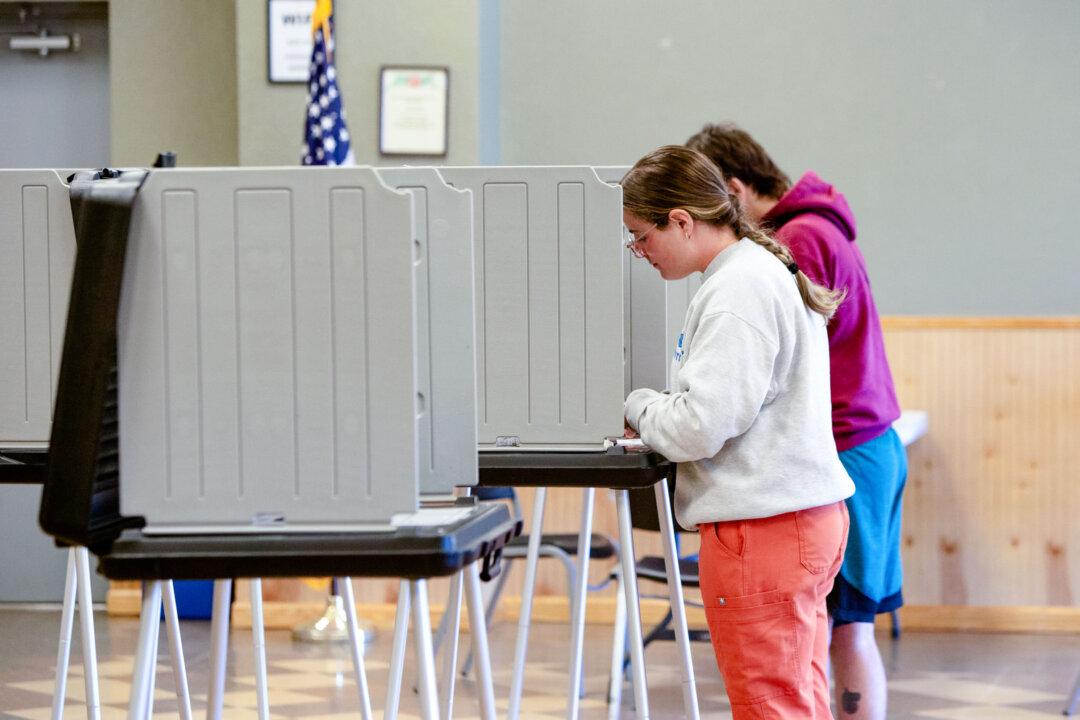Nearly half (48 percent) of Generation Z voters and 23 percent of U.S. voters overall have lied about their voting preferences this year to people close to them, according to a recent Axios Vibes survey conducted by The Harris Poll.
The poll, which surveyed 1,858 registered voters online between Oct. 22 and 24, found that 58 percent of overall voters say their preferences are a private matter, with 33 percent saying they aren’t close to certain family members due to different political beliefs. For Gen Z voters—aged between 18 and 27—that number is 44 percent, and for Millennials (aged 28–43), that number is 47 percent.





